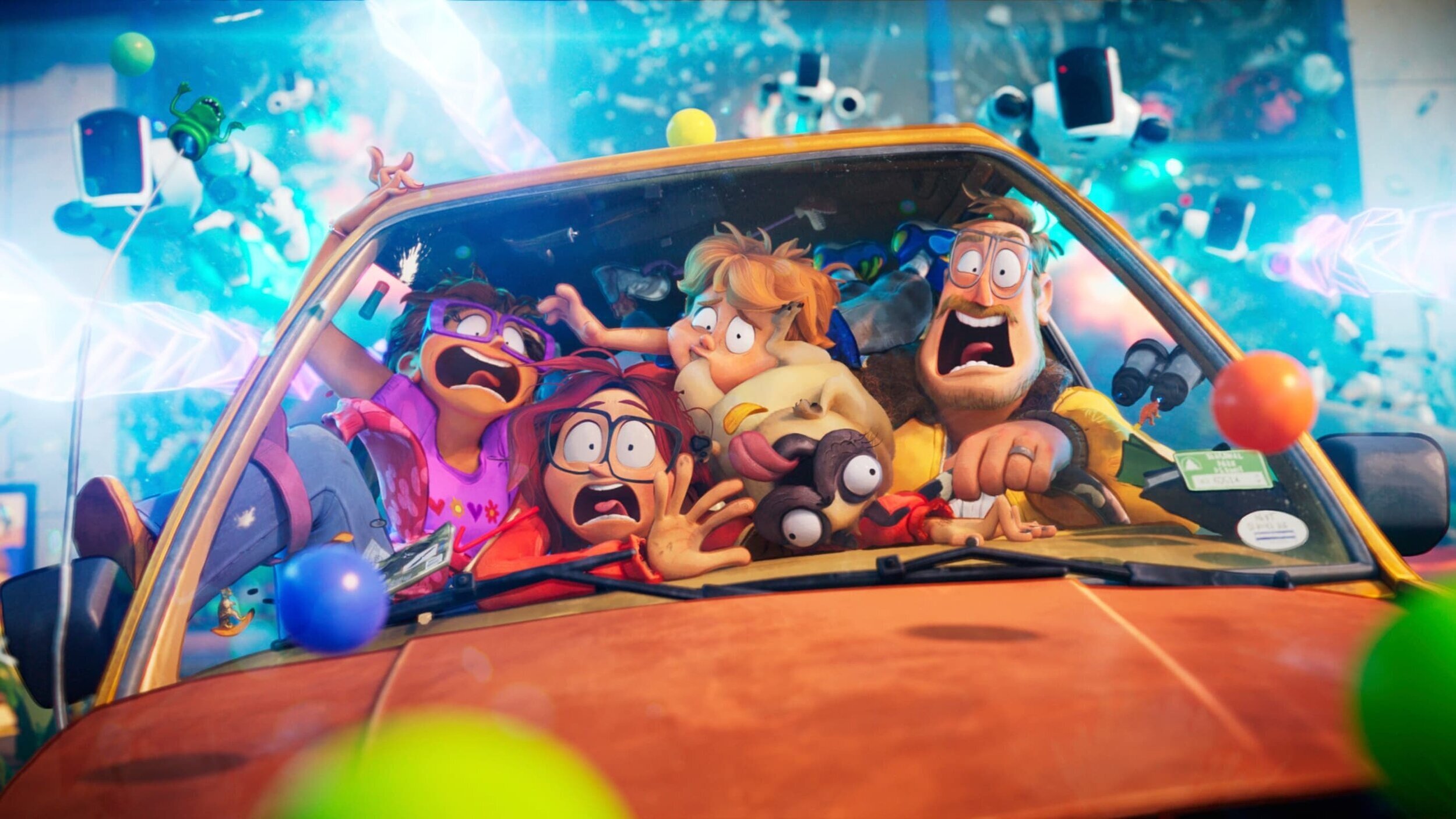The Mitchells vs. The Machines
netflixWhile Netflix has generally become known for focusing on quantity over quality when it comes to their weekly original films, the one side of Netflix which has been rather strong since Day 1 is their original animation releases. Whether one wants to look at their purchased or originally produced animated releases, Netflix rarely misses in this genre with The Mitchells vs. The Machines coming as the newest film to join this lineup. Marking the feature directorial debut of Michael Rianda with the fantastic duo of Lord and Miller set to produce the feature, The Mitchells vs. The Machines not only lives up to the expectations put upon it but surpasses them providing an incredibly fun film that the entire family can enjoy.
The bright spots begin almost immediately as the film welcomes the audience into its world which is filled with original and creative animation that blends countless styles and textures. Whilst the visuals within The Mitchells vs. The Machines might not be as consistent as a project such as Pixar's Soul, seeing the animation medium be pushed and used to create a unique personality that goes beyond just trying to make the film look as photo-realistic as possible is always refreshing and makes the visuals all the more memorable. Sure, every individual scene might not look incredible, but the overall final product more than delivers when put together into a 114-minute feature.
Another highlight that is experienced right off the bat is the cast of characters that the film develops. Capturing the complex emotions of family which often intertwines love and conflict is no easy task yet the film's screenplay from Jeff Rowe and Michael Rianda does a rather admirable job walking this tightrope and creating characters that shine both on their own and in their relationships. Katie Mitchell (Abbi Jacobson) is on her own an incredibly likable character as the audience gets exposed to her passions and desires but the character is brought alive through the family she belongs to. Her relationship with her socially awkward brother Aaron (Michael Rianda) is beyond charming, while the turbulence felt between her and her father Rick (Danny McBride) is heartfelt and feels authentic. Whilst the family dynamics featured throughout the film might not be anything revolutionary, they are undeniably effective and accomplish what they set out to do.
In order to balance these emotions, the film is also filled to the brim with nearly non-stop comedy in a sense cinema hasn't seen since something like The Lego Batman Movie. Similar to the animation, the non-stop flow of comedy can be somewhat overwhelming at times and undeniably plenty of it will miss. Yet because there is a new joke approximately every 3-seconds, those pass rather quickly and there is enough smart writing to make the film feel overall worthwhile as a comedy. A lot of the credit for the best comedic moments has to go to the directing from Michael Rianda. As seen in his career making shorts such as Work, Rianda has an incredible control over his comedy and specifically understanding how to direct it alongside deeper emotions to where neither side is hurt by the presence of the other. Where individual pieces like the writing and performances absolutely deserve credit for making the content within the film as successful as it is, Rianda deserves the credit for holding it all together and creating not just a competent but rather successful final product.
The one side of the film that starts to feel rather taxing at times is the robot invasion plot. Clearly hoping to find some deeper message regarding the relationship between modern society and technology, the film uses a robot invasion as its major conflict which can feel distracting and needed. Though there is comedy reached because of this, the plot feels rather predictable and paint by numbers and can, at times, take away from the humanity – which is supposed to be the core of the film. The reason a film like 1995's A Goofy Movie touched so many was because of how down-to-earth it ultimately was. Sure, there was goofiness and comedy found within the journey that the two leads take, but it never strays too far from the grounded identity it hopes to have. The Mitchells vs. The Machines abandons this mindset however and is quick to lose itself in a larger plot that is never needed for what the film is actually trying to achieve. The social message found within this plot also never reaches its full potential. The film touches on legitimately poignant topics and ideas such as looking at humanity for abusing technology rather than the other way around, but with a rather generic villain and story, these ideas are never actually allowed to be that impactful.
The Mitchells vs. The Machines might not be the next all-time animated classic, but it is undeniably a successful feature. Not every individual frame of the film will work, but the overall experience carries both enough laughs and hearts to be clearly worth checking out and continues Netflix's overall strong library of animated releases.


